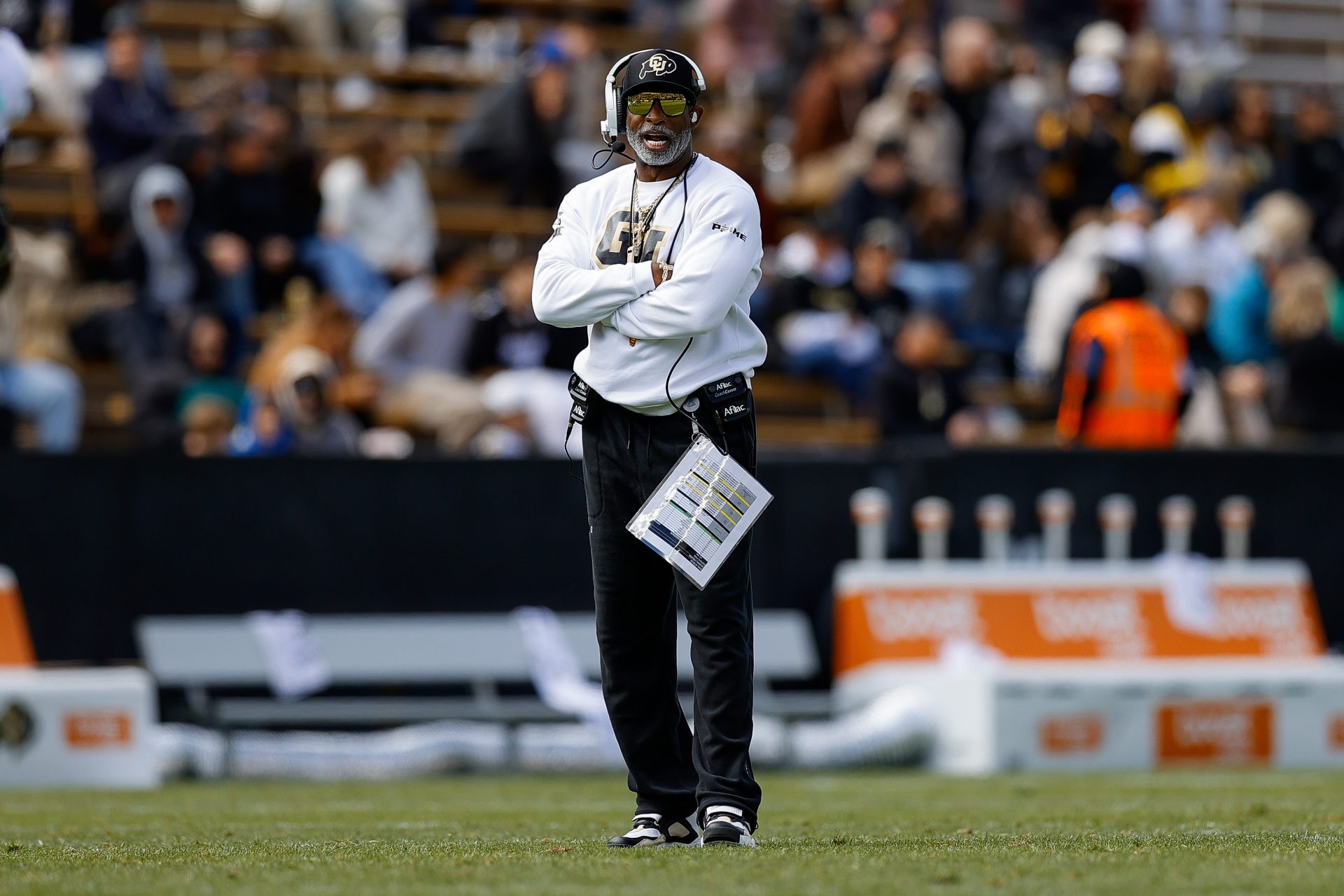College sports’ NIL compensation policy has generated intense discourse between athletes, coaches, and commentators.
Recently, Chad Ochocinco, the former NFL wide receiver known for his outspoken personality, took to his podcast, “Nightcap,” with NFL great Shannon Sharpe to disagree with Deion Sanders’ recent proposal to cap college athletes’ NIL earnings.

Chad Ochocinco Questions Deion Sanders’ NIL Cap Pitch
Deion Sanders, the head coach of the Colorado Buffaloes, recently proposed that college football should adopt an NFL-style salary cap structure for controlling NIL payments. Sanders advocated for college football to follow NFL regulations, which would impose a similar spending limit on NIL compensation for athletic players.
Wide receiver Chad “Ochocinco” Johnson spoke with his podcast co-host, Shannon Sharpe, to explain why he disagrees with this idea. He stated that he believes college athletes should earn the full value of their worth instead of facing restrictions imposed by the cap.
Current changes in college athletics influenced Sanders to propose a salary limitation for athlete compensation. The recent legal settlement enables Division I colleges to offer their student-athletes annual payments starting at $20.5 million beginning in the 2025–26 academic year, bringing college athletes closer to professional athlete status.
Sanders sees this as a reason to adopt professional-level financial structures, including salary caps, to bring order and fairness to NIL compensation.
He highlighted the significant financial differences between budgeted colleges, pointing out that programs with hundreds of millions in available funds gain more advantage over those with fewer financial resources.
Sanders criticized the NCAA for failing to properly manage NIL rights and predicted that a non-regulated system could funnel economic control into chaotic extremes.
In contrast, Ochocinco advocates for players to be paid fully according to their worth in the NIL marketplace. He reasoned that the proposed limit would unjustly constrain athletes’ compensation, especially for student-athletes who possess a strong appeal to sports audiences.
Ochocinco’s stance reflects a growing sentiment among some former players and athletes who believe that the NIL era should empower players financially rather than limit them.
College sports face important scrutiny regarding how student-athletes earn money from NIL activities. Sanders works to preserve teamwork, unity, and equal conditions in college athletics, while Ochocinco exemplifies the adaptation needed to succeed with present-day sports marketing methods.
RELATED: ‘What Are We Doing Here?’ — Cam Newton Calls for Stricter NIL Rules in College Football
Student-athletes who can freely earn will draw more talented athletes to college teams, leading to improved athletic competitiveness.
Ultimately, the discussion between Ochocinco and Sanders reflects the diverse viewpoints on NIL compensation. The NCAA must balance fair treatment with equal opportunity in order to determine how college sports will evolve.
College Sports Network has you covered with the latest news, analysis, insights, and trending stories in college football, men’s college basketball, women’s college basketball, and college baseball!

